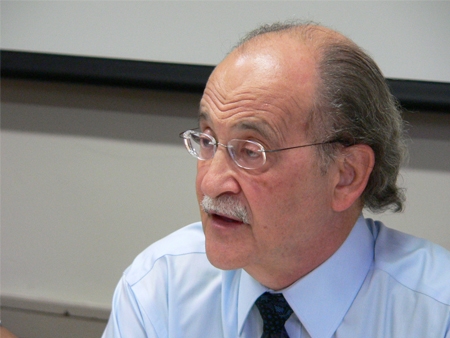Went to see Fahrenheit 11-9 this afternoon, Michael Moore’s new movie, with my friend Anna. Yes, the irony of the election night trajectory. Yes, the anti-democratic, self-destructive suppression of Sanders. Yes, the Flint, Michigan, racialist targeting of black Michigan by Rick Snyder. (Was he a model for Donald Trump?) Yes, Stoneman Douglas and the strong spirit of the survivor students. Yes, scholarly — NYU and Yale — validation that the “fascist” attribution is more than vitriol. Yes, the left militancy of the rising stars on the left. How do you narrate this story together?

Not as Michael Moore narrated it. Which is not to say you shouldn’t see it. You should. Each segment is an award-winning documentary short. But, strung together? Meh.
What Moore is trying to grasp is a still reversible spirit; think the “Goebbels Project” but early on. Moore wants to say, we’re almost there — almost really fascist — but that there are counter-movements that are still very active. From that vantage point, the sharp juxtapositions of positive and negative, hopeful and pessimistic, offer fodder for discussion. It is a thought piece. Good.
But, unlike, say, Fahrenheit 9-11, which documented a descent into authoritarianism; or Bowling, which offered us a critique of the military-industrial complex — the central message of 11-9 remains buried and burdened by the layers through which it must climb to present itself.
That message is that the Democratic Party has sold out its working class constituents. Yes. The Christian Democrats and Liberals needed to migrate toward nationalist ideals (and away from Social Democrat and Communist ideals) in order to finally be compromised by fascism. They helped make fascism appear acceptable, much as the Democratic leadership were the opening act for Trump.
But this would suggest a narration that guides us to a coherent account of the mechanisms at play in this transition from — as Moore reminds us, in polling data — liberal, progressive America to fascist outcomes.
Yes. Progressives were deeply, fundamentally, absolutely disillusioned by Clinton and Obama. (The Obama sequence in Flint is for the ages.) They were aghast at a Party that so baldly and boldly and anti-democratically eliminated its own base. The margin in 2016 was far smaller than the disenfranchised excluded by the Democratic National Committee. And Moore’s highlight of candidates who are fighting the DNC is truly inspiring. I hope they win.
But the social and cultural and political analysis is at best weak and mostly non-existent. Moore lets the events speak for themselves, which they never do. Moore wants the underlying moral weight of the narrative to justify itself. It never does. The implication, but only the implication, of Moore’s documentary is that democrats in general and the DNC in particular are complicit. But how?
The fascists have a clear narrative. In 1960 at best 10 per cent of the public shared this narrative. But the base, funded by wealthy patrons, kept the narrative alive. The left has never had a popular narrative. Their “narrative” was the close to $4.8B the public spent defeating the Japanese and Germans. Their “narrative” was: look what that $4.8B did to our economy. Bang.
Which means that when Germany and Japan recover and begin competing with the US, the progressives have absolutely no response. We should spend lots of public money to defeat . . . drugs . . . crime . . . poverty. Without the least recognition that it is the public distribution of the social franchise down the income hierarchy that generated the growth of the 1940s 50s and 60s.
Instead, the elites within the Democratic Party promoted a counter-narrative about free markets and free trade, that actually bore no empirical relationship whatsoever to the realities of the 1940s and 1950s. Sorry, but JFK’s narrative about the free world? It was a total fabrication.
Instead of wrapping his narrative around this clear economic story, Moore elected a moral narrative; that actually muddies and muddles his story.
But it also muddies and muddles the story of working families. And that, principally, is the problem with Moore’s take.


